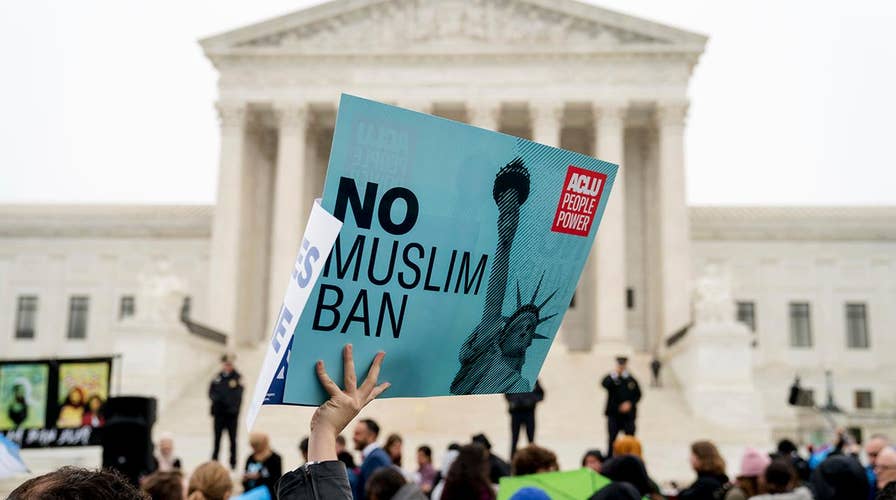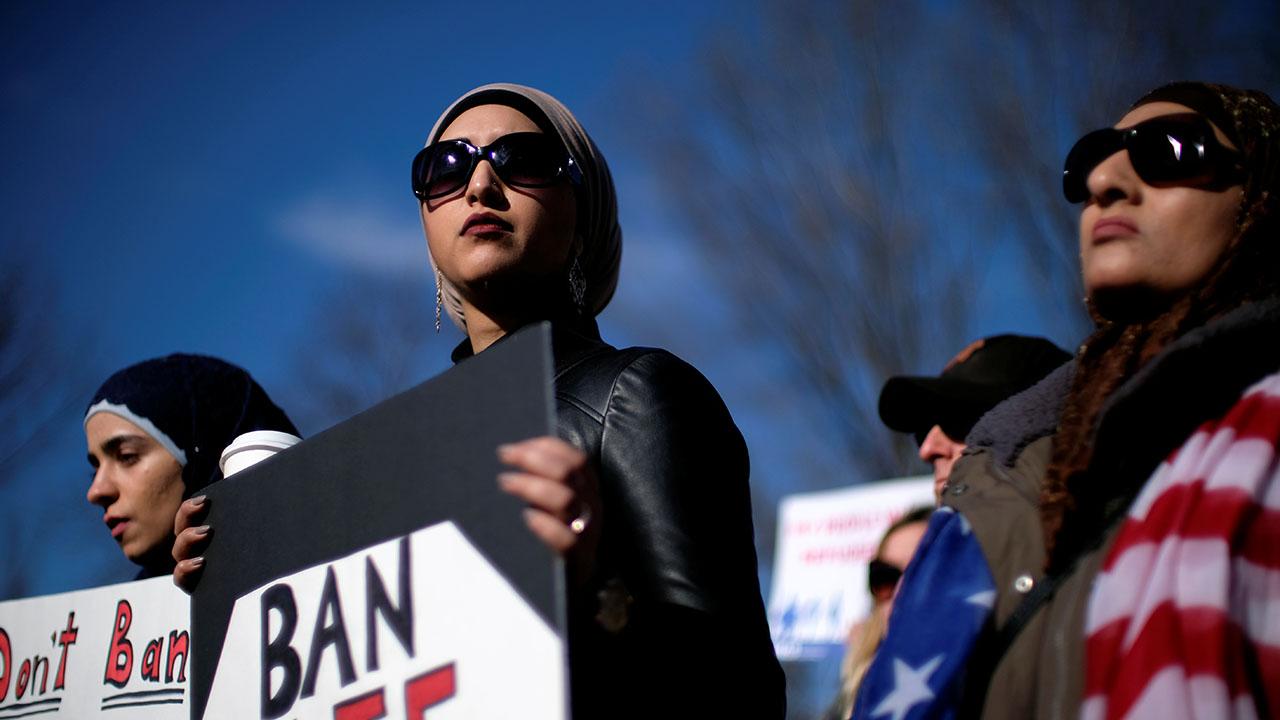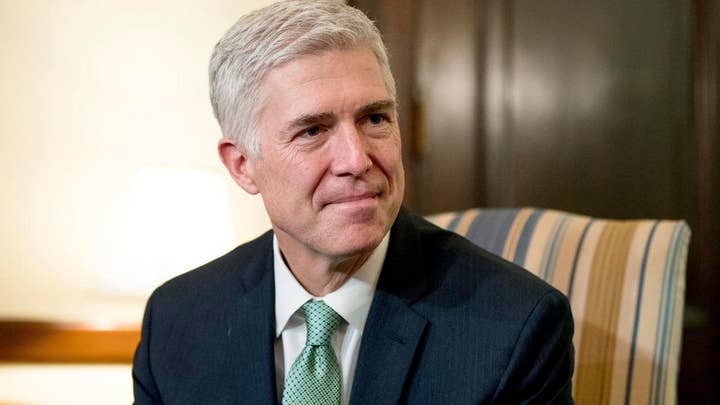Supreme Court hearing oral arguments on Trump's travel ban
President Trump's controversial travel ban restricts visitors from five Muslim countries, North Korea and Venezuela; 'Fox News @ Night' Anchor Shannon Bream reports.
The Trump administration enjoyed a favorable reception Wednesday from the Supreme Court's conservative majority in the first significant legal test of this president's policies and power, as the justices reviewed the high-stakes challenge to the so-called travel ban.
At issue is whether the third and latest version of President Trump's travel restrictions, affecting visitors from five majority Muslim nations, discriminate on the basis of nationality and religion, in the government's issuance of immigrant visas.
Protesters gathered outside the court to condemn the restrictions. But inside the courtroom, the last scheduled oral argument of the term appeared divided along the usual conservative-liberal lines.
Despite some speculation over Trump appointee Neil Gorsuch – given a recent ruling in which he sided with liberal colleagues on an immigration case – the conservative jurist seemed to offer indirect support Wednesday as he called into question a federal judge’s prior attempt to suspend the travel ban nationwide.
Justice Samuel Alito also noted that of the 50 or so mostly Muslim majority countries, only five were on the current banned list, or about 8 percent of the population, he said.
"That does not look at all like a Muslim ban," he said, referring to the label the policy’s critics have given it.
Justice Elena Kagan, meanwhile, questioned whether the executive had free rein to assert his authority over foreign policy and immigration matters and, if so, was it "game over" for any subsequent meaningful judicial review.
Justice Sonia Sotomayor also sought assurances from the Justice Department's solicitor general that the waiver policies for those seeking a visa from five mostly Muslim countries were more than just "window dressing.”
The case could, once again, come down to Justice Anthony Kennedy. But his line of questioning could be seen as positive for the administration.
At one point, he wondered whether then-candidate Trump's campaign call for a "total and complete shutdown of Muslims" entering the U.S. (rhetoric being used against him in this case) was important to the current appeal.
"Is anything said in a campaign irrelevant?" he asked.
But Kennedy also suggested the president has "continuing discretion" to decide how long countries can remain on the banned list of entry, meaning the policies could be open-ended.
Given the high public interest, the court modified its usual policy and released audio of the session within an hour after its conclusion.
A decision expected in June could represent a precedent-setting ruling on the limits of executive power, especially within the immigration context.
The justices have allowed the current restrictions -- known as travel ban 3.0 -- to be enforced at the Justice Department's request, at least until the case is fully litigated.
Sixteen state leaders led by Texas are among a number of coalitions backing the Trump administration. But Hawaii officials, who filed the appeal contesting all of the president's orders, say the president's policies continue to violate the Constitution's guarantee of religious freedom:
"Any reasonable observer who heard the President's campaign promises, read his thinly justified orders banning overwhelmingly Muslim populations, and observed his Administration's persistent statements linking the two, would view the order and each of its precursors as the fulfillment of the President's promise to prohibit Muslim immigration to the United States."
A number of civil rights, immigrant and Muslim advocates filed separate briefs opposing the government's policies. These challengers to the 3.0 order argue Trump has taken his enumerated powers to extremes by banning entire populations from multiple countries, an estimated 150 million people.
Federal appeals courts in Virginia and California in recent months had ruled against the administration. The San Francisco-based 9th Circuit court last December concluded Trump's proclamation, like the two previous executive orders, overstepped his powers to regulate the entry of aliens.
It "fails to provide a rationale explaining why permitting entry of nationals from the six designated countries under current protocols would be detrimental to the interests of the United States," wrote the appeals judges.
The White House, on the other hand, has framed the issue as a temporary move involving national security. A coalition of groups in opposition call the order blatant religious discrimination, since the five current countries involved have mostly Muslim populations: Iran, Libya, Somalia, Syria and Yemen. Chad was recently removed from the list after the administration said that country had beefed up its information-sharing.
The current case is Trump v. Hawaii (17-965).














































